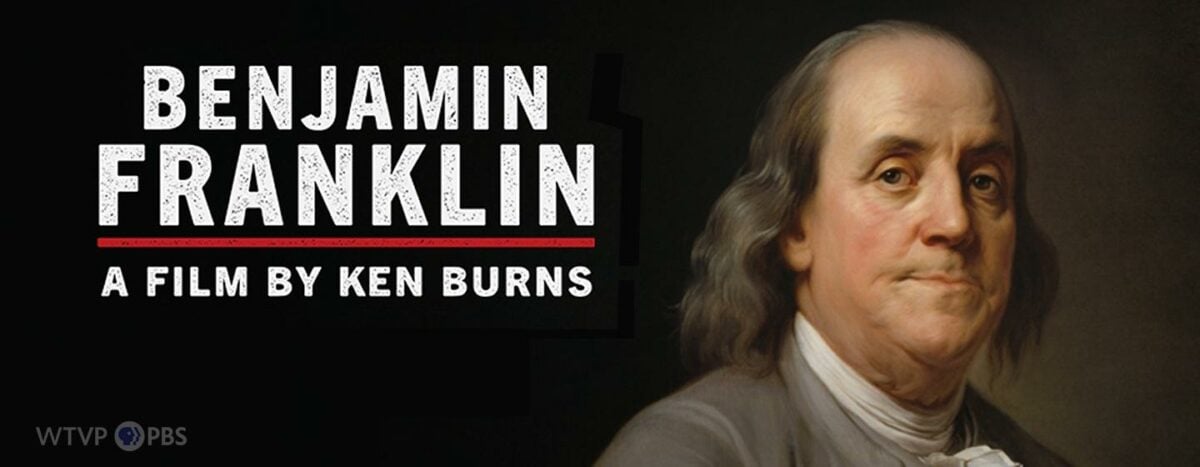The first part of Ken Burn’s new documentary, Benjamin Franklin, aired on April 4th, 2022. And Ben Franklin’s name is one that nearly every American has some passing familiarity with. And while he didn’t pen any hit musicals, Franklin was a “founding father,” inventor, ambassador, and notorious lech. He was supposedly so popular with the noble ladies in France that King Louis XVI, in a super petty move, presented one with a chamber pot that had Franklin’s face painted on the inside of the bowl.
The new documentary (presented in two parts) will cover the entirety of Franklin’s life—from his humble beginnings in Boston, to his achievements and causes post-Revolutionary War. Franklin was a complicated man, and the documentary aims to try and unravel some of his many shifting and contradictory opinions. One of Franklin’s biggest (and most controversial at the time) shifts, was his views on slavery.
Did Benjamin Franklin own slaves?
Unfortunately, yes. Like several other “founding fathers” (like Thomas Jefferson, George Washington, and James Madison), Benjamin Franklin was at one point a slave owner. He held seven people in slavery, two of whom traveled with him to London for a time, Peter and King. In London, one of the men (King) escaped, and Franklin did not pursue him. However, he also made money by posting paid ads for the sale of slaves, and for the capture of runaway slaves, in his general store—as well as in the Pennsylvania Gazette that he published. So, not only did he own slaves, but he also profited off of the slavery system in other ways. There’s no getting around his participation, and contribution to, this horrific part of the founding of The United States.
Why did he change his views?
It seems that Franklin had an awakening after King escaped. When Franklin returned from London in 1762, he became an abolitionist and began making attacks on American slavery. In 1774, he founded the Pennsylvania Society for Promoting the Abolition of Slavery (with Benjamin Rush), and said that slavery was “an atrocious debasement of human nature” and “a source of serious evils.” He refused to publicly debate the issue at the 1787 Constitutional Convention, but in 1790, when Quakers in New York and Pennsylvania presented a petition for abolition to Congress, they were backed by the Pennsylvania Abolitionist Society that he founded. He also wrote several essays advocating for abolition and integration including, “An Address to the Public” and “A Plan for Improving the Condition of the Free Blacks.” He also stipulated in his will that his children would not receive any of their inheritance unless they freed their slaves.
It will be interesting to see how Burns’s documentary covers Franklin’s complicated moral shift—because while he became an abolitionist, he didn’t start out that way. Plus, he still held a lot of racist, sexist, antisemitic, and xenophobic views (he did not want German immigrants coming to America)—views that may have been commonplace at the time, but are morally repugnant none the less.
(image: PBS)










Published: Apr 5, 2022 04:15 pm